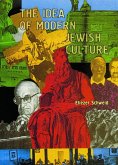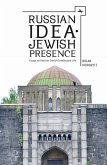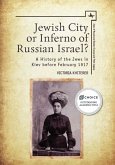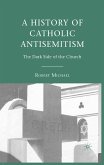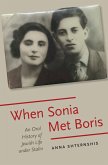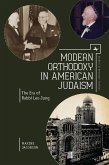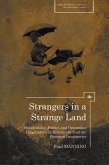In Russian Idea-Jewish Presence, Professor Brian Horowitz follows the career tracks of Jewish intellectuals who, having fallen in love with Russian culture, were unceremoniously repulsed. Horowitz relays the paradoxes of a synthetic Jewish and Russian self-consciousness in order to correct critics who have always considered Russians and Jews as polar opposites, enemies, and incompatible. In fact, the best Russian-Jewish intellectuals-Semyon Dubnov, Maxim Vinaver, Mikhail Gershenzon, and a number of Zionist writers and thinkers-were actually inspired by Russian culture and attempted to develop a sui generis Jewish creativity in three languages on Russian soil.
Dieser Download kann aus rechtlichen Gründen nur mit Rechnungsadresse in A, D ausgeliefert werden.



